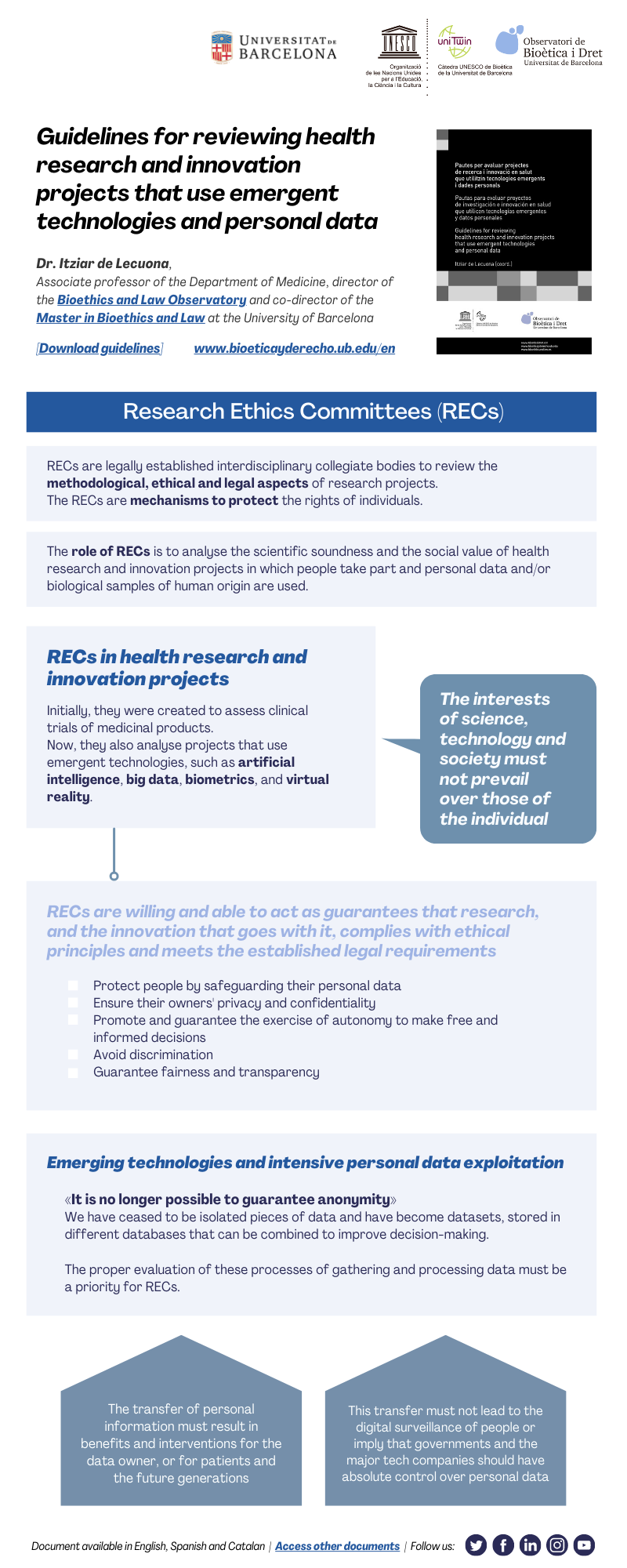The Bioethics and Law Obs.
Master in Bioethics and Law
UNESCO Chair in Bioethics
Contact
- Bioethics and Law Observatory
- UNESCO Chair in Bioethics
- University of Barcelona
- Faculty of Law
- Ave. Diagonal, 684
- 08034 Barcelona
- (+34) 93 403 45 46
- obd.ub@ub.edu
- Master in Bioethics and Law
- (+34) 93 403 45 46
- master.bd@ub.edu
Publication of the infographic based on the document "Guidelines for reviewing health research and innovation projects that use emergent technologies and personal data"
 The infographic based on the document "Guidelines for reviewing health research and innovation projects that use emergent technologies and personal data", published by the Bioethics and Law Observatory - UNESCO Chair in Bioethics of the University of Barcelona and coordinated by Dr. Itziar de Lecuona, was presented within the framework of the seminar "Artificial intelligence and data protection in health research and innovation: ethical, legal and social aspects", on September 21, 2022.
The infographic based on the document "Guidelines for reviewing health research and innovation projects that use emergent technologies and personal data", published by the Bioethics and Law Observatory - UNESCO Chair in Bioethics of the University of Barcelona and coordinated by Dr. Itziar de Lecuona, was presented within the framework of the seminar "Artificial intelligence and data protection in health research and innovation: ethical, legal and social aspects", on September 21, 2022.
Dr. Itziar de Lecuona, associate professor of the Department of Medicine, director of the Bioethics and Law Observatory and co-director of the Master in Bioethics and Law at the University of Barcelona, showed the infographic, which synthesizes and highlights the essential points developed in the document, during her lecture "Research ethics committees and data protection in the evaluation of emerging technologies in health research and innovation".
In this way, the infographic exposes, in a visual and concise way, what Research Ethics Committees (RECs) are, their functions, and the dilemmas that health research and innovation projects raise, especially in a scenario where emerging technologies and the exploitation of personal data play a leading role.
-
Access the document "Guidelines for reviewing health research and innovation projects that use emergent technologies and personal data" (available in English, Spanish and Catalan)
-
See and download the infographic
-
The infographic is also available in Spanish and Catalan



